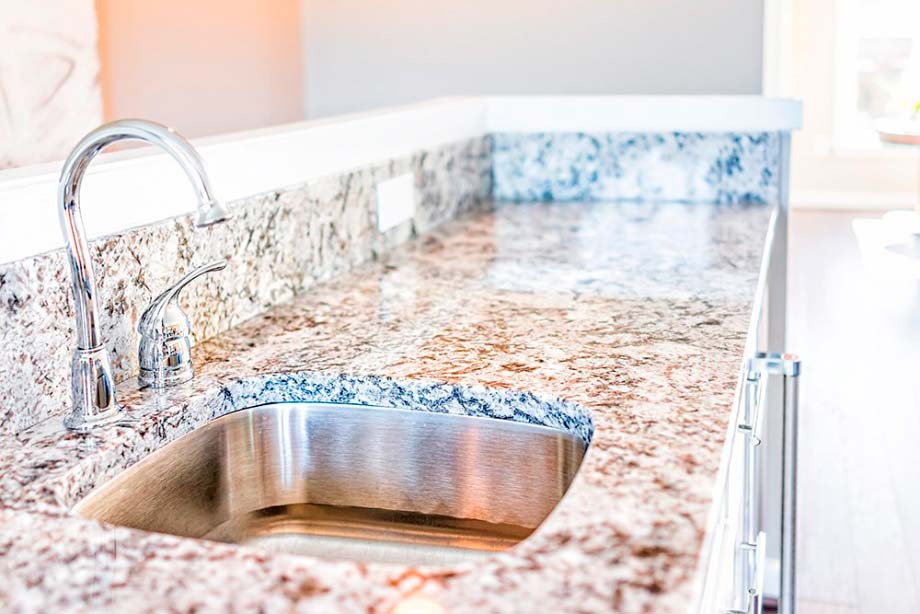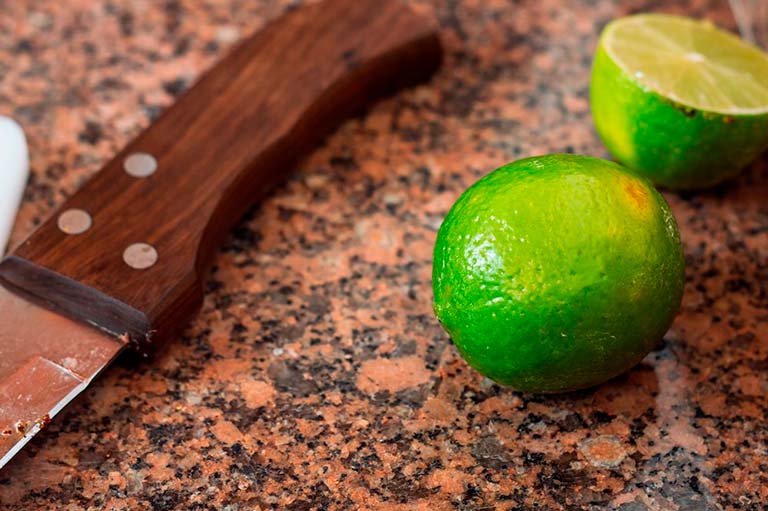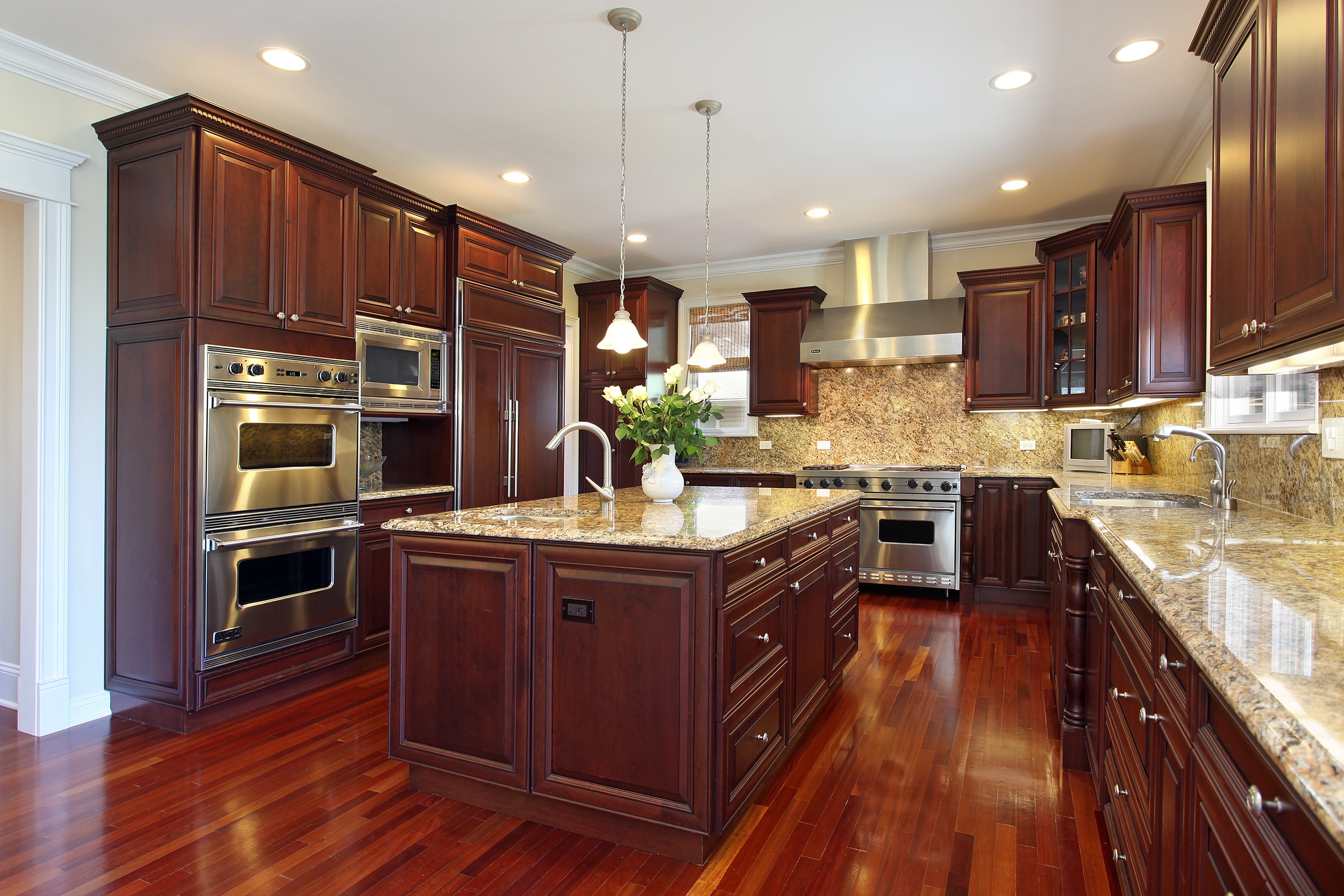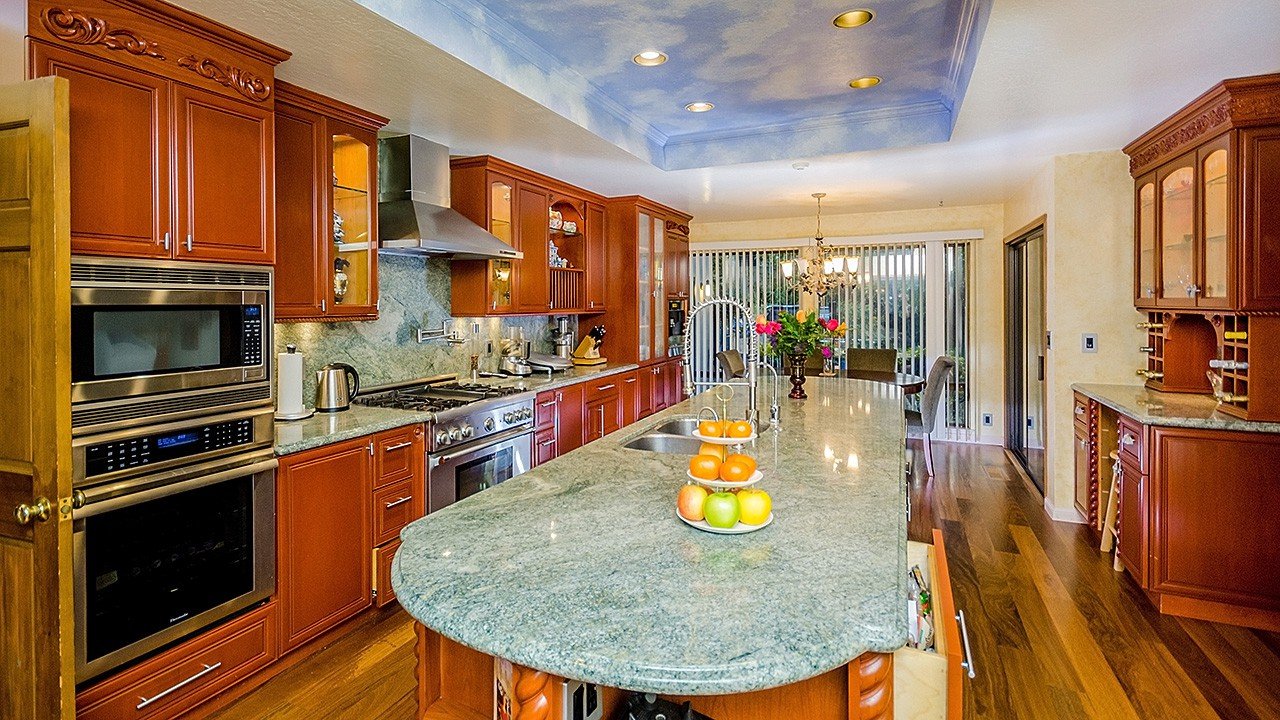How Often Do I Need to Seal Granite?

In order to maintain the beauty and elegance of your granite countertops at home, you should learn how to properly seal granite. Although granite is one of the toughest materials around, you will still need to understand how to take care of it to make sure its luster and beauty stay with it for as long as possible.

Why is Proper Sealing Important?
Generally speaking, granite is a hard, natural stone material. Due to its nature, it would be quite easy to think that it can withstand just about anything – and you could be right. However, you could also be equally wrong.
When you frequently subject your granite countertop to knives, food, or acidic substances, your surface could show signs of wear and tear. Various kitchen activities can damage the surface, leading to scratches, burn marks, acid stains, and other unsightly marks.
To protect your countertop from everyday kitchen activities, it is important that you know how to seal granite countertops. Sealing the granite is a great way to protect your countertop from outside elements that can damage the surface. However, this must be performed periodically as everyday activities can wear away the seal.
Factors to Consider When Sealing Granite
To properly seal granite, you must consider different factors. These must be taken into consideration to protect the surface while eliminating any risk for further damage.
Porosity of the Material
The porosity of granite determines its ability to absorb certain liquids, including the sealant. A few granite varieties are quite porous. When left unsealed, various liquids such as water, oils, or other liquids can be absorbed into the granite, causing unsightly stains to appear. Applying sealant to the surface blocks these pores and adds a protective layer over the surface. This blocks its ability to absorb other liquids and protects your granite countertop.
It is also important to note that many granite varieties are non-porous. These are quite dense and do not require sealing. In fact, they cannot be sealed as they lack the necessary pores to absorb liquids. And because they lack the ability to absorb the sealant properly, applying a sealant to the surface “just to be safe” will leave a haze on the surface, which is difficult to remove in most cases.
Type and Quality of Sealant Used
Not all sealants were made for granite countertops. Some countertop sealants work better than most at effectively sealing the stone’s pores. This is based on its ability to penetrate the material – the deeper into the surface it penetrates, the better it resists outside elements.
To provide the best protection to your granite countertop, use a class known as impregnating stone sealers. Professional contractors recommend this class of sealants for sealing granite, marble and slate countertops to keep out moisture, mold, and bacteria.
Quality of Sealant Application
Most granite countertops come pre-sealed, which won’t require resealing depending on how the sealant was applied. When the surface was properly sealed, it won’t easily succumb to the elements and won’t require resealing for a couple of years.
On the other hand, some companies use poor quality silicon or siloxane-based sealers that can easily fade away, requiring re-application about every 6 months up to a year.
If you want to avoid having to reseal your surface multiple times a year, you must learn how to seal granite countertops properly. That means understanding the properties of your surface material as well as knowing how to seal the surface correctly using the correct sealant.

Granite countertops need sealing, and with a little effort, your countertop will look just like this Black Galaxy one!
Do I need to Seal Granite Countertop?
To understand whether your granite surface does, indeed, require sealing, you will have to test it. This can be done in two ways. The first one, the water drop test, tests for the porosity of your stone while the second one, the oil and lemon test, not only tests for the material’s porosity but also for any presence of materials that are sensitive to acidic spills.
The Water Drop Test
The Test
Drop a few drops of water on your granite countertop and let them sit for a while.
The Results
- If it darkens in an instant, the stone is very absorbent and will need multiple coating. Reapply sealant every 3 years.
- If the stone takes 4 to 5 minutes to darken, it will need a good impregnator sealant. Reapply the sealant every 3 to 5 years.
- If the stone darkens in 10 to 15 minutes, only one coat of sealant is needed. Check for absorbency and reapply again in 3 years.
- If the stone takes more than 30 minutes or does not darken at all, the stone is dense and non-porous. Application of sealant may not be needed.

The Oil and Lemon Test
The Test
- Take a few granite samples and place them on the table. Dust them thoroughly.
- Add a few drops of lemon juice and cooking oil on different spots on your samples.
- Let the juice and oil sit on the surface of the granite samples and wipe them dry.
The Results
- For the lemon juice, if dull spots appear on the surface of the granite, this could be a sign that it contains calcite or other materials that react to acid.
- For the oil, if the sample turns dark immediately, the granite is absorbent. Apply multiple coats of sealant and reapply in 3 years.
- If the stone turns dark after 5 minutes, you will need a good impregnator sealant to control its porosity.
- If it takes more than 10 minutes to absorb, or doesn’t at all, you have a good granite countertop and it probably won’t require sealing.
We have tons of slabs in stock to make the best countertop ever! Browse our catalog and you’ll find that very granite slab you will absolutely fall in love with!
Quality You Can Trust
Granite countertops are famed for their beautiful qualities and are elegant additions to your home. But with the amount of exposure it gets as part of our daily activities, it’s easy to worry about the state of our countertops. It can be especially worrying if you’re unsure of the quality of your countertop.
But with Granite Selection, you wouldn’t have to worry. We at Granite Selection are experts when it comes to everything granite. Get your granite from us and worry no more.
Schedule your measurements and give us a call at (888) 906 3317. We’ll be more than happy to assist you.




